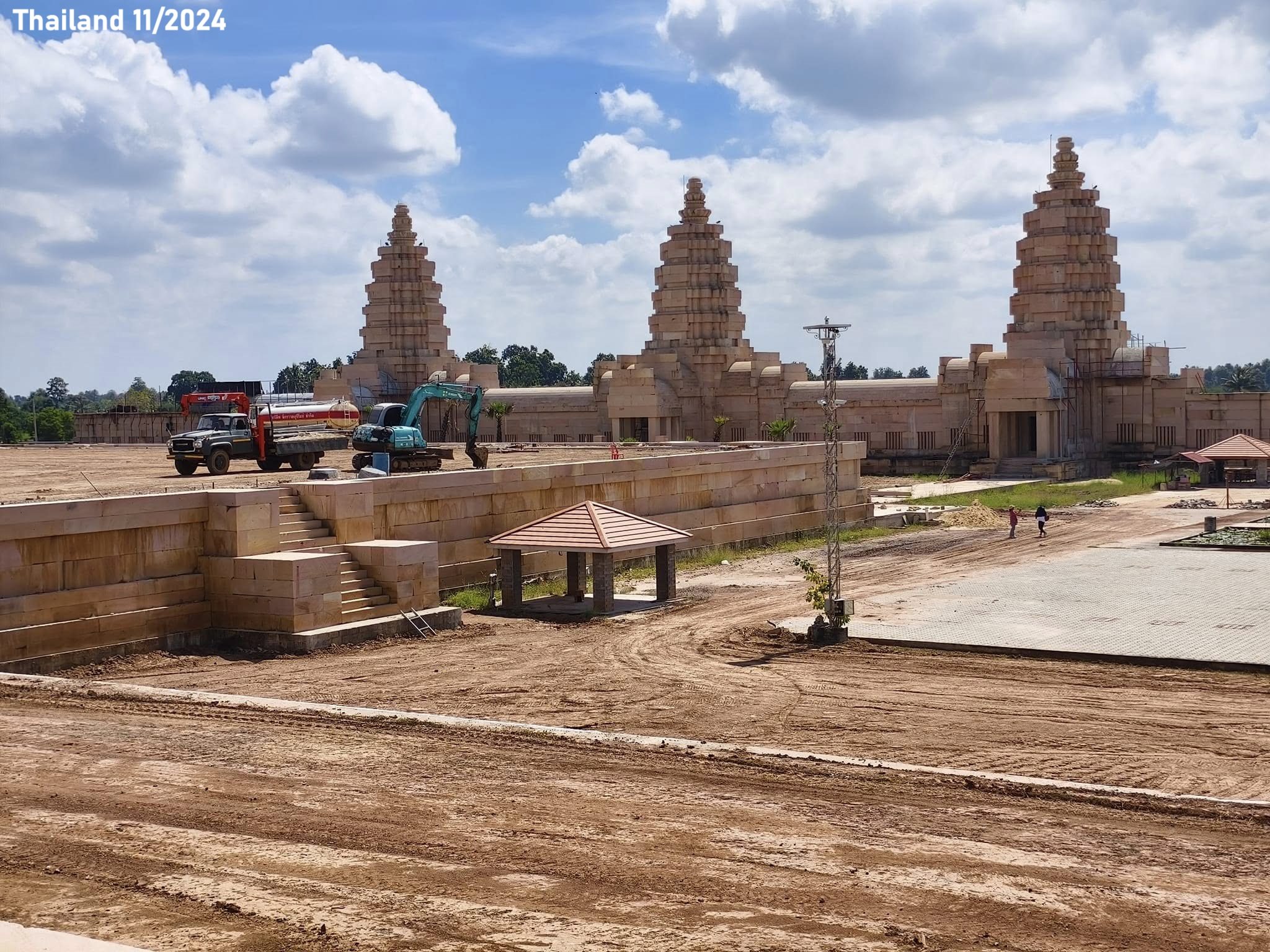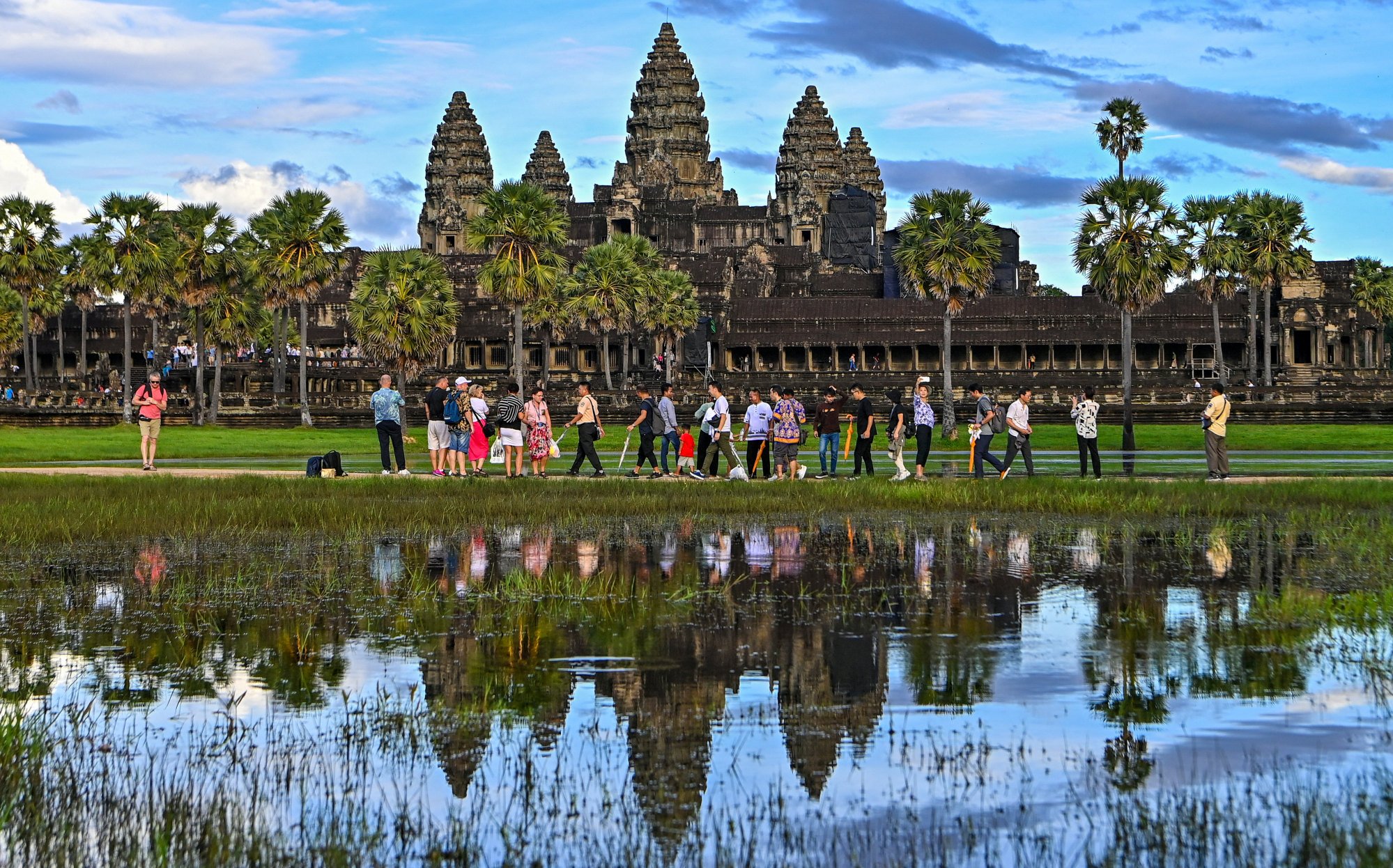Wat’s the problem: Cambodia resurrects cultural theft claims against Thailand
Cambodia’s culture minister has called Wat Phu Man Fa’s Sihanakhon temple complex a ‘blatant infringement’ on its iconic Angkor Wat

As Thailand and Cambodia remain locked in a border dispute, another conflict has erupted – this time on the cultural stage, with Cambodia condemning a Thai temple for copying the design of its world-renowned Angkor Wat.
Accusations against Wat Phu Man Fa in Buri Ram province, a region that borders Cambodia in northeast Thailand, have been levelled since the construction of the 100-million-baht (US$3 million) temple began in 2020.
But now, they have escalated to the national level.
Cambodia’s Minister of Culture and Fine Arts Phoeurng Sackona voiced objections to the grand Sihanakhon temple complex within the 32-hectare (79-acre) Wat Phu Man Fa on Thursday, saying it “undermines the outstanding universal value and authenticity of Angkor Wat”.
Angkor Wat, a Unesco World Heritage site, is renowned for its intricately carved ancient stone temples dating back to the 12th century.

“The replication of Angkor Wat’s architectural blueprint in the construction of Sihanakhon is a blatant infringement upon Cambodia’s national identity and cultural soul,” she said during a national meeting on historical sites preservation, according to Thai Public Boardcasting Service.
The temple also violated Unesco’s 1972 World Heritage Convention, of which Thailand and Cambodia are members, the Cambodian minister added, according to the Khmer Times.
Thai officials have rejected claims of architectural plagiarism. In 2021, Khattiya Chaimanee, a local cultural official, told UK newspaper The Guardian that the design “was not an exact match” and could be found across architecture in the south Isan region in the north-east of Thailand.
Somsak Sungwarajitto, the abbot who designed the temple, also maintained that there was no intention to copy Angkor Wat. His vision, he said, was a celebration of Buddhist traditions rather than a direct imitation of the World Heritage site, according to the Thaiger news portal.
Even Cambodia itself said in a 2021 press release that the complex was not a replica of Angkor Wat or any other temple in the country.
The renewed controversies have sparked fierce public debates in both nations.
Thuy Chanthourn, an archaeologist at the Royal Academy of Cambodia, sided with the minister and urged the government to file a complaint with Unesco, according to the Khmer Times newspaper.
“Out of excessive admiration, Thailand has copied the design and style to build on its own territory, violating international law. It reflects poorly on creativity and innovation,” he said. “They should create something original, something of their own design.”
Those on the other side of the border said that Cambodia was overreacting, noting that Khmer art had long been part of Thai cultural heritage, the Thaiger reported. Others believe the timing of the accusations is politically motivated.
Relations between the two countries have deteriorated rapidly since a Cambodian soldier was killed in a clash at the border on May 28.
In a series of tit-for-tat moves, Thailand has imposed restrictions on citizens and tourists heading into Cambodia via land, while Cambodia has banned certain imports from Thailand as well as Thai dramas and films. Both countries have also shut several border crossings.